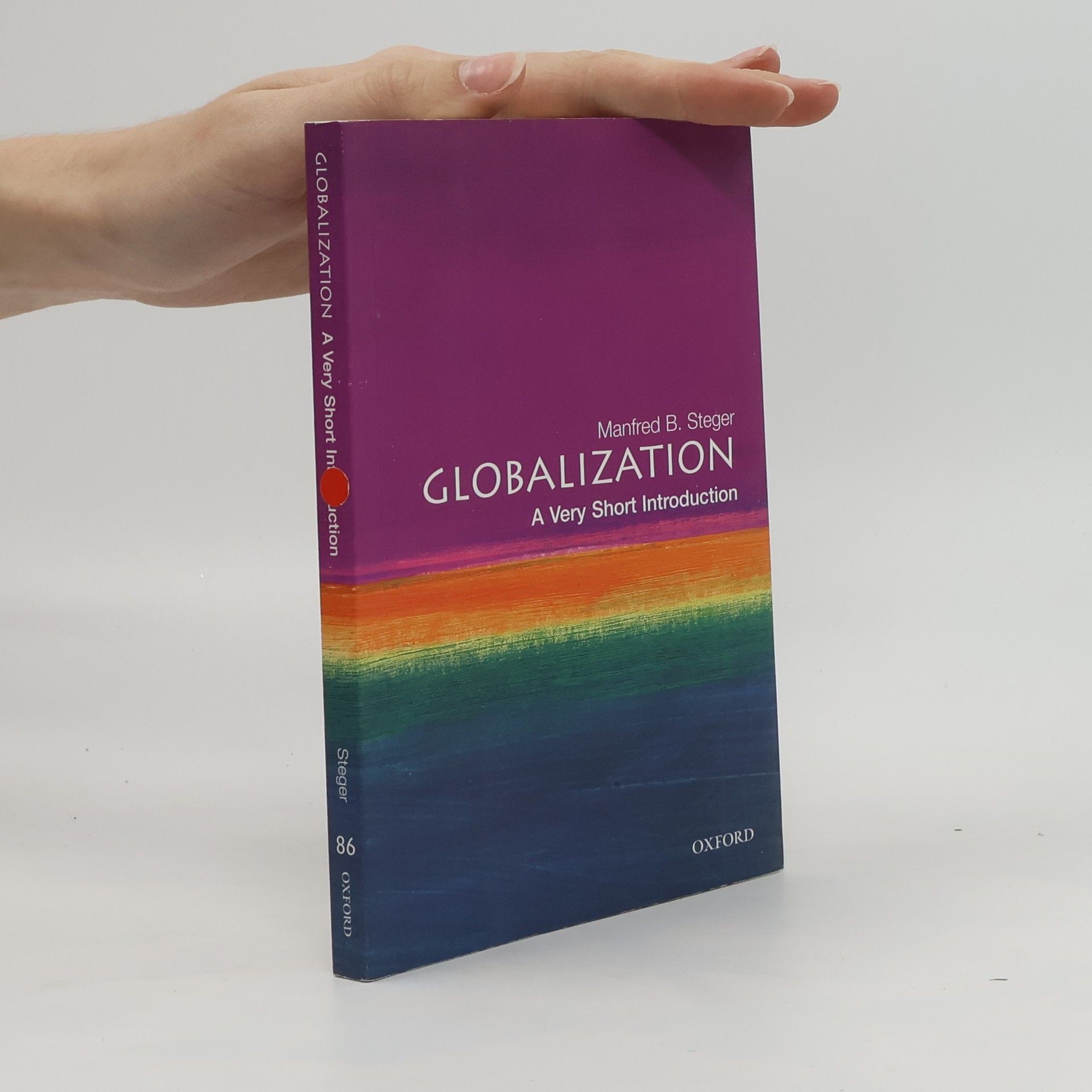Manfred B. Steger Livres
L'œuvre de Manfred B. Steger explore la nature de la mondialisation, de l'idéologie et de la non-violence. Son écriture se caractérise par une analyse approfondie des processus mondiaux et de leurs fondements idéologiques. Steger examine comment l'idéologie de marché se propage et influence les événements mondiaux, dans le but de comprendre les forces profondes qui façonnent notre société moderne. Son approche est rigoureuse mais accessible, incitant les lecteurs à réfléchir sur des phénomènes sociétaux complexes.







Grassroots Zen
- 176pages
- 7 heures de lecture
Many Zen Buddhist practitioners have come to question some of Japanese Zen's less democratic aspects -- from the strict, male-dominated hierarchies to the racial overtones. At the same time, modern American Buddhists often find it difficult to integrate zazen (seated Zen meditation) with lives of family, work, and social engagement. This book offers a fascinating guide to overcoming both these dilemmas. A study of how one Zen group returned to an ancient Chinese tradition of community meditation practice without a leader or hierarchy, this book also outlines an authentic, grassroots approach, urging people from all walks of life to come together in meditation and the study of dharma. Grassroots Zen focuses on the challenge of truly becoming one with the moment in our frantically paced society; of finding a space for the passing self; and of achieving balance between Zen practice and daily life, as well as individuality in community. A thoughtful and absorbing work, Grassroots Zen is an important book for those seeking a practice that is truly of the people, by the people, and for the people.
Neoliberalism: A Very Short Introduction
- 168pages
- 6 heures de lecture
In its heyday in the late 1990s, neoliberalism emerged as the world's dominant economic paradigm. Since then the global financial crash of 2008 and the recent emergence of more nationalist ideologies have challenged neoliberal assumptions and systems. This book examines the origins, core claims, and global variations of neoliberalism.
Globalization
- 151pages
- 6 heures de lecture
Rather than forcing such a complex social phenomenon into a single conceptual framework, Manfred Steger presents globalization in plain, readable English as a multifaceted process encompassing global, regional, and local aspects of social life.
"Globalization" has become the buzz-word of our time. A growing number of scholars and political activists have invoked the term to describe a variety of changing economic, political, cultural, ideological, and environmental processes that are alleged to have accelerated in the last fewdecades. Rather than forcing such a complex social phenomenon into a single conceptual framework, Manfred Steger presents globalization in plain, readable English as a multifaceted process encompassing global, regional, and local aspects of social life. In addition to explaining the variousdimensions of globalization, the author explores whether globalization should be considered a "good" or "bad" thing--a question that has been hotly debated in classrooms, boardrooms, and on the streets.
P’Chang dosáhl úrovně osvíceného zenového mistra v 8. století, ale zůstal laikem se ženou, dcerou a synem. Po otci zdědil majetek, který potopil v řece Šao. Společně s dcerou cestovali a prodávali bambusové nástroje, zatímco žena a syn pracovali jako nájemní zemědělci. P’Chang vyjadřoval své myšlenky o složitosti a jednoduchosti existence, zatímco jeho žena zdůrazňovala lehkost učení. Dceři Ling-čao říkal, že jeho hloubání není ani snadné, ani složité, a že se řídí svými základními potřebami. Poslední roky žil se svou dcerou v jeskyni, kde se připravil na smrt. Požádal ji, aby mu řekla, až bude slunce v zenitu, a když se to stalo, zjistil, že jeho dcera zemřela na jeho místě. Po sedmi dnech smutku zemřel v přítomnosti přítele Ju Tiho, který sepsal příběhy o P’Changovi a jeho rodině. Po smrti dcery a syna, který zemřel na místě, paní P’Changová odešla do hor jako poustevník. P’Chang žil mimo konfuciánské tradice, raději psal básně než kázal, a zanechal po sobě mnoho kóanů a dialogů se zenovými mistry.
